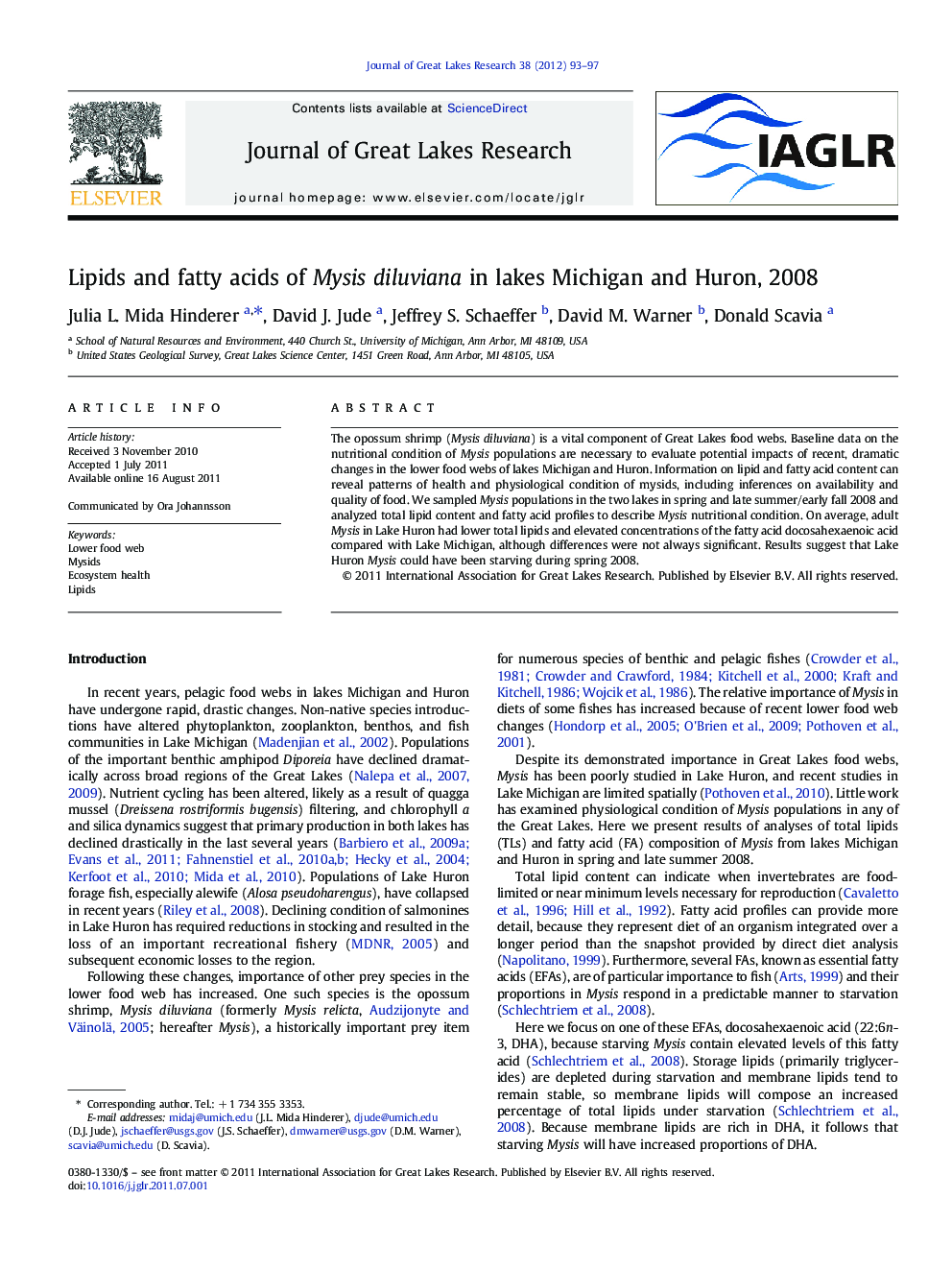| Article ID | Journal | Published Year | Pages | File Type |
|---|---|---|---|---|
| 4398670 | Journal of Great Lakes Research | 2012 | 5 Pages |
The opossum shrimp (Mysis diluviana) is a vital component of Great Lakes food webs. Baseline data on the nutritional condition of Mysis populations are necessary to evaluate potential impacts of recent, dramatic changes in the lower food webs of lakes Michigan and Huron. Information on lipid and fatty acid content can reveal patterns of health and physiological condition of mysids, including inferences on availability and quality of food. We sampled Mysis populations in the two lakes in spring and late summer/early fall 2008 and analyzed total lipid content and fatty acid profiles to describe Mysis nutritional condition. On average, adult Mysis in Lake Huron had lower total lipids and elevated concentrations of the fatty acid docosahexaenoic acid compared with Lake Michigan, although differences were not always significant. Results suggest that Lake Huron Mysis could have been starving during spring 2008.
► Mysis in Lake Huron in spring 2008 (one station) could have been starving. ► Mysis in Lake Michigan were in good condition in both spring and summer 2008. ► Mysis in Lake Michigan were in better condition than Mysis in Lake Huron in both seasons.
